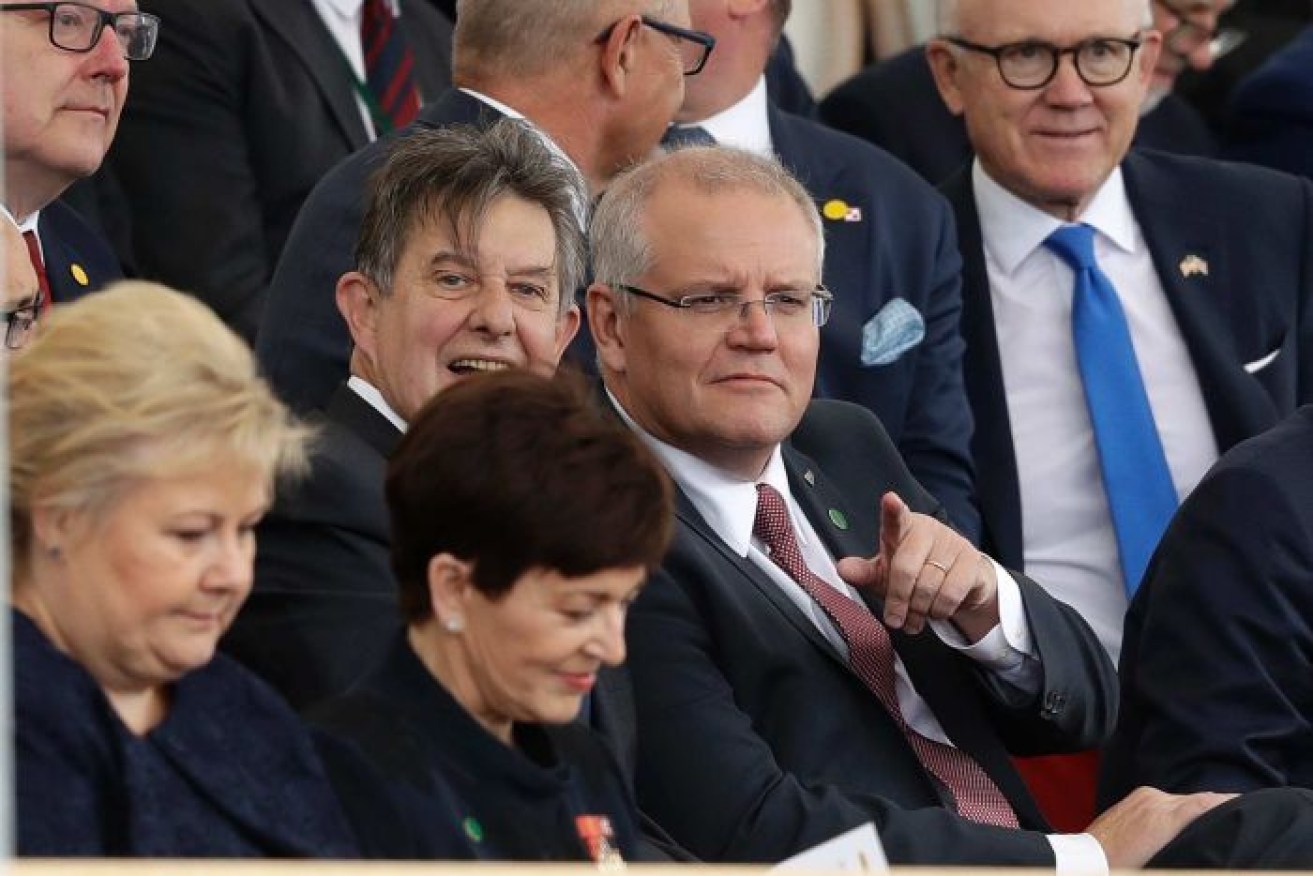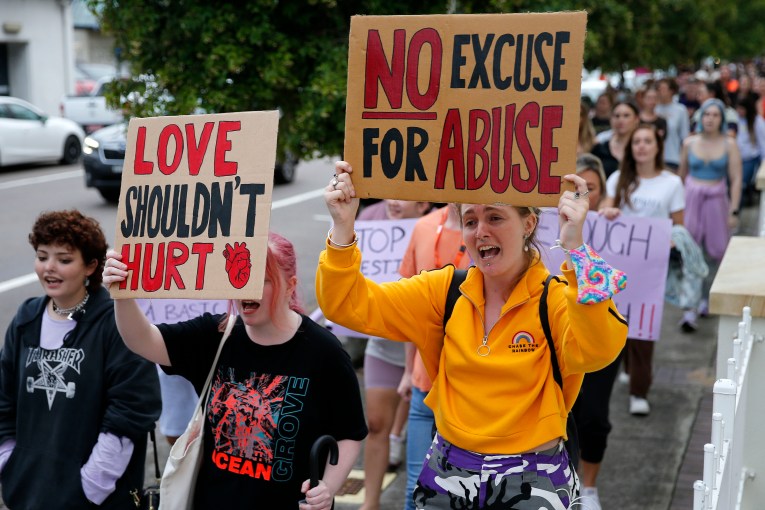Scott Morrison grilled on press freedom after AFP raids on ABC, journalist Annika Smethurst

Scott Morrison was questioned about AFP raids on the media after attending an event to mark the 75th anniversary of the D-Day landings. Photo: AP
Prime Minister Scott Morrison insists his government is committed to press freedom but “no one is above the law”, speaking in response to Australian Federal Police raids this week on the ABC and News Corp journalist Annika Smethurst.
“My government is absolutely committed to freedom of the press,” Mr Morrison told journalists after events commemorating the 75th anniversary of D-Day.
“These are matters that were being pursued by the AFP operationally, at complete arm’s length from the government, not with the knowledge of the government, not at the instigation of government ministers.
“These were matters that had been referred to the federal police sometime ago, last year, preceding even my time as coming to be Prime Minister.”
The AFP mounted an eight-hour raid on Wednesday on the ABC’s Sydney headquarters over the Afghan Files – a series of investigative stories published in 2017 that revealed allegations of unlawful killings and misconduct by Australian special forces in Afghanistan based on secret documents leaked to the ABC.
ABC managing director David Anderson said the AFP officers left the broadcaster’s offices on Wednesday with about 100 documents on two USBs.
He said the files would remain sealed for a fortnight while the ABC assesses its legal options.
“We don’t think we’ve done anything unlawful in publishing these stories, we think these stories are absolutely in the public interest,” Mr Anderson told RN Breakfast.
The raid on the ABC came on the heels of a separate AFP raid at the home of News Corp journalist Annika Smethurst, who had reported on secret plans to allow government spying.
Journalists asked Mr Morrison if Australia was “taking tips on media freedom from China” and if it made him uncomfortable the raids came on a day when he and other world leaders were commemorating freedom and democracy.
“I can understand why these issues can cause great anxiety, particularly to members of the press,” Mr Morrison said.
“But at the moment what we are dealing with are two separate investigations following a normal process and any suggestion these were done at, with the knowledge of, the instigation of Government ministers, is completely untrue.
“No one is above the law,” he added.
Shadow attorney-general Mark Dreyfus accused the government of cowardice in its refusal to answer questions about the raids.
He said the Prime Minister and Home Affairs Minister Peter Dutton had questions to answer.
“Mr Morrison can’t hide behind Mr Dutton, who is in a cowardly way hiding behind police,” he said.
“What has to happen is they both – Mr Morrison, Mr Dutton – have to stand up and explain to Australians why some of the freedoms our forefathers fought for are being threatened.”
‘Troubling trend’
The Australian‘s legal affairs editor Chris Merritt said the raids were “horrendous”, writing in his column: “Welcome to modern Australia – a nation where police raid journalists in order to track down and punish the exposure of leaks inside the federal government”.
He rejected Mr Morrison’s attempts to avoid responsibility.
“The AFP is the instrument of the state,” he told the ABC, in a televised interview Wednesday night.
“I don’t blame the AFP. I blame the federal government for stewardship of laws that permit this to happen.”
He said the government last year had an opportunity to change the law and chose not to.
“What we’ve got is an inconsistent approach here that gives the AFP a very strong incentive to raid journalists in order to find the identity of whistleblowers who have provided journalists with confidential information,” he said.

Peter Greste, pictured after being freed from an Egyptian jail, said recent AFP raids had a chilling effect on press freedom and transparency. Photo: AAP
Also appearing during the interview, Peter Greste, the former al-Jazeera journalist jailed for more than a year in Egypt on broad national security offences, said he was shocked by the raids.
“I’m not saying that Australia is about to become as authoritarian as Egypt but the trends are moving in a similar direction,” Greste said.
“The arguments around national security trumping press freedom are much the same … I think that is a very, very troubling trend.”
He said the raids sent a message to whistleblowers and it had “a very serious chilling effect”.
“It’s something we all need to be concerned about, because this is really not about us as journalists, it’s about maintaining transparency and accountability,” he said.








